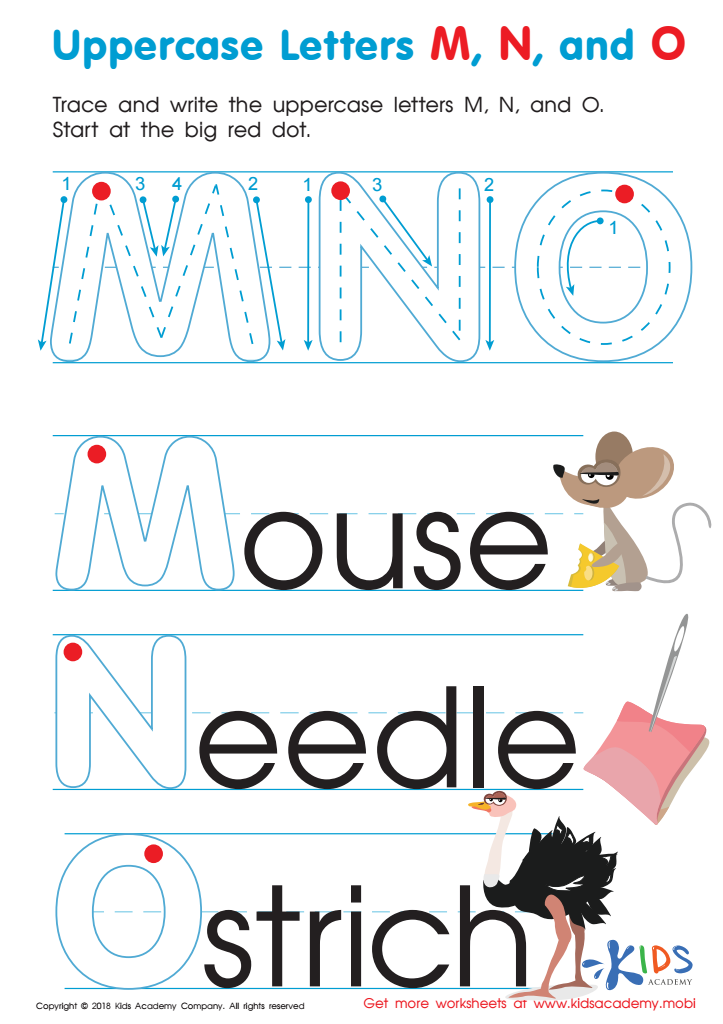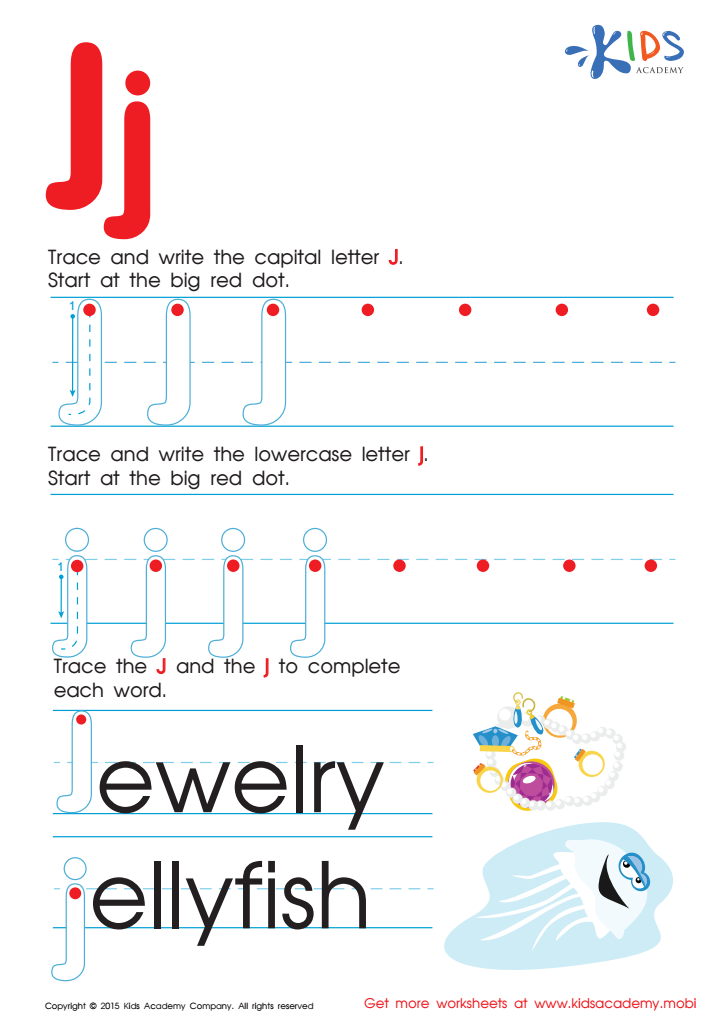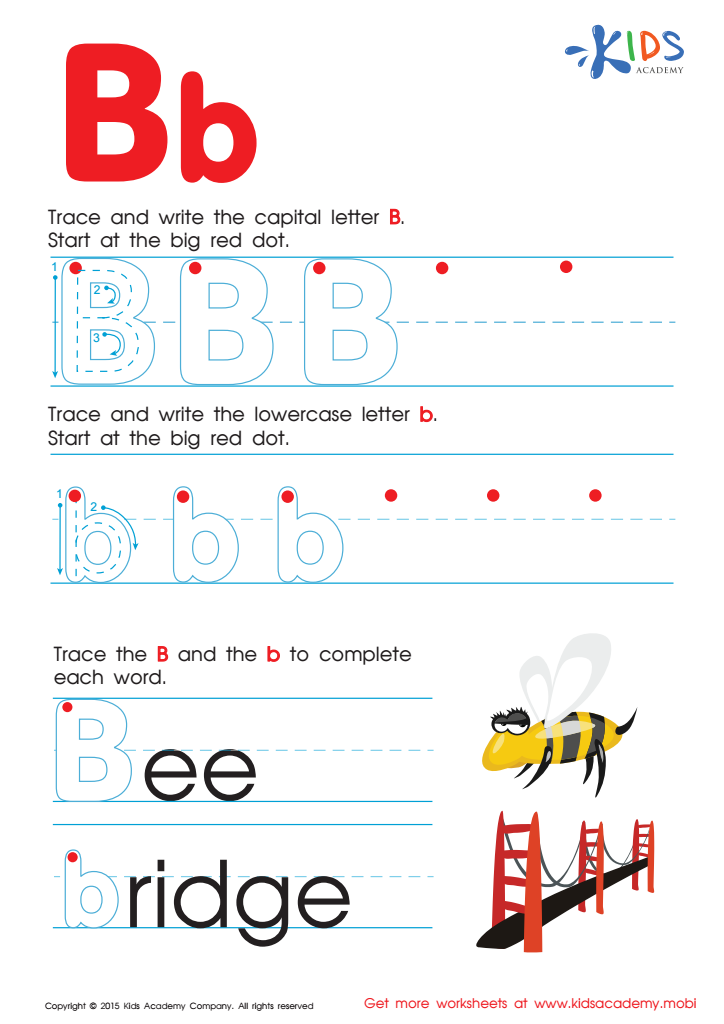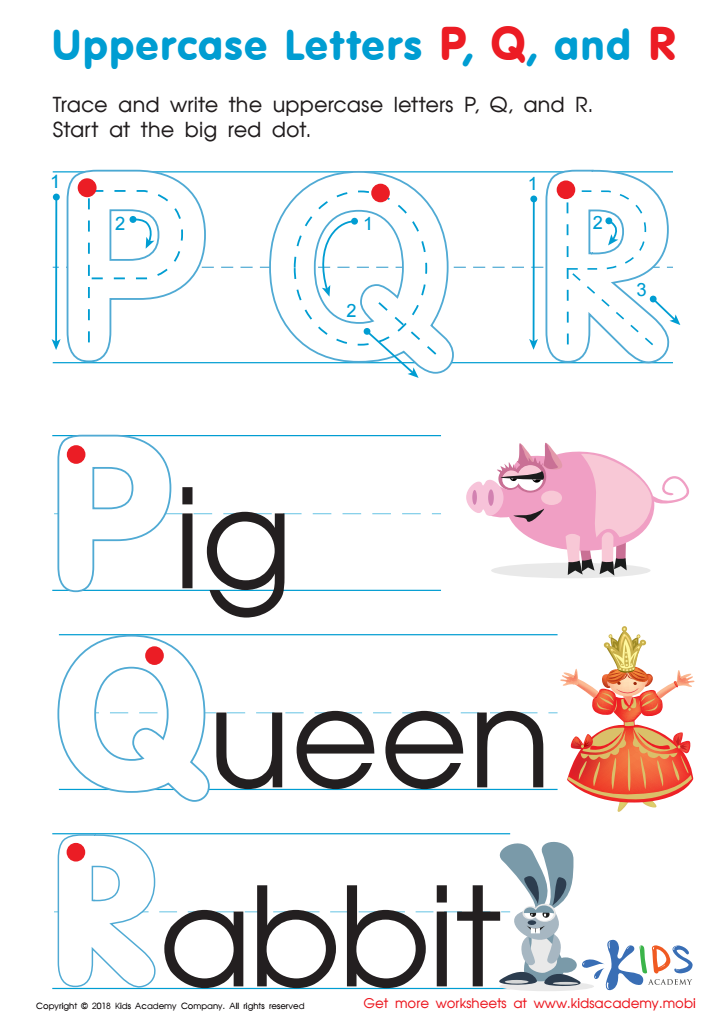Handwriting improvement Normal Tracing Letters Worksheets for Ages 4-6
4 filtered results
-
From - To
Enhance your child's handwriting skills with our Normal Tracing Letters Worksheets, specifically designed for ages 4-6. These engaging worksheets provide a fun and interactive way for young learners to practice letter formation and improve their fine motor skills. By tracing both uppercase and lowercase letters, children develop muscle memory and gain confidence in their writing abilities. Our thoughtfully crafted activities foster early literacy while making learning enjoyable. Ideal for use at home or in the classroom, these worksheets cater to the developmental needs of preschoolers and kindergartners. Help your child master handwriting with our exciting and visually appealing resources today!


Uppercase Letters M, N, and O Worksheet


Letter J Tracing Page


Letter B Tracing Page


Uppercase Letters P, Q, and R Worksheet
Handwriting improvement through normal tracing of letters is a crucial developmental skill for children aged 4-6. During these early years, motor skill development is vital, and tracing helps enhance fine motor skills and hand-eye coordination. When children practice tracing letters, they develop muscle memory, which facilitates smoother writing as they progress.
Furthermore, handwriting lays the foundation for literacy skills. By familiarizing young learners with letter shapes and formations, they better recognize letters and sounds, essential for reading and communicating effectively. This practice fosters a love for writing and storytelling, encouraging creativity and self-expression.
In addition, focusing on handwriting improvement can boost children's confidence. As they master letter tracing, they gain a sense of accomplishment, motivating them to continue learning. Good handwriting also plays a role in academic performance, as clear writing is often associated with better grades and understanding in various subjects.
Moreover, handwriting skills enhance classroom effectiveness, enabling children to focus on content rather than struggling with writing mechanics. Thus, parents and teachers should prioritize tracing activities to support children's overall cognitive, emotional, and academic development—ensuring they enter the next stage of learning with essential skills firmly in place.
 Assign to My Students
Assign to My Students














